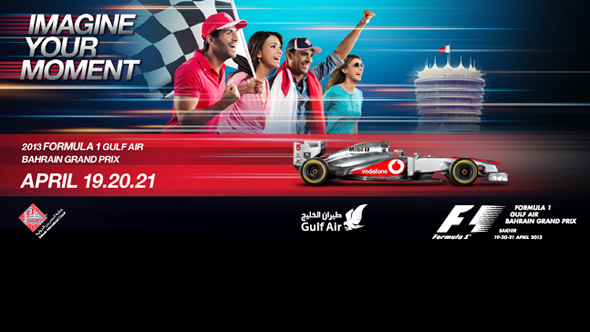Bahrain F1: The Human Race
Bahrain Opinion
F1: The Human Race
By Mitchell Belfer
It is the social life the race encourages that hoists it to such a prominent place in the hearts and minds of every Bahraini. The F1 fills Bahrainis with a sense of accomplishment, of belonging to the international community, of displaying their country to the rest of the world.

Bahrain is a country that has generated considerable controversy. For this reason Marcopolis.net has solicited views and opinions of experts with regards to the vast amount of media reporting on political conditions in Bahrain. Disclaimer: The ideas expressed in this section are solely the opinions of the author(s).
F1: The Human Race
By Mitchell Belfer
Manama, 14 April 2013: The air was electric with human excitement. People were bustling around the track checking, double-checking and triple-checking every inch of the grounds to ensure that by the time the drivers take their pole positions at this year’s Formula 1 race in Bahrain, the event flows like clockwork. Engineers, promoters, pockets of stewards, and cleaners darted in and out of each part of the extensive complex, each with their own mission and playing their own part in the preparations. The track may have been devoid of race cars, but the people – of every background, creed and colour – had their own driving force.
Arriving at the scene eight days before the checkered flag drops was like watching the engine of a car start, raw energy being flushed through the system to give it life. But the life Bahrain’s race gives is not merely reducible to the organisers and spectators, it is not only the 3000 marshals, the student volunteers or the vendors. Certainly, these are important, but it is the social life the race encourages that hoists it to such a prominent place in the hearts and minds of every Bahraini. The F1 fills Bahrainis with a sense of accomplishment, of belonging to the international community, of displaying their country to the rest of the world. It is an event that has the eyes of the nation transfixed, in the stands and on the televisions. It allows people to take a break from the daily grind of work and politics to focus on sport and national healing.
The race will go on as planned and it will be a sweeping success. Shia and Sunni will park their cars and assume their seats, they will bring their children and their friends and they will talk to each other. Seats are not segregated and neither are the concession stands. The only true segregation is found in the politics of ‘opposition’ that have become synonymous with the politics of exclusion.
Perhaps here lies the clue as to why the F1 has been so politicised by the al Wefaq society, and why an entire terror campaign was declared by the Military Wing of Hezbollah Bahrain and its affiliates; they are simply terrified of national reconciliation. They have staked their careers to dividing Bahrain and oppose everything that keeps it sewn together.
So, when ‘Operation Raging Volcano’ was declared by Hezbollah, endorsed by Sacred Defence and topped off with violent demonstrations organised by al Wefaq, there was no ambiguity as to their goals; prevent the F1, deny the government important revenues, polarise Bahraini society, and strangle yet another attempt to repair the damage of two years of political tensions.
So far, ‘Raging Volcano’ has resulted in nearly ten separate firebomb attacks, two car bombs, two instances of rioting, several small and one massive tyre fire and a handful of attacks against individuals, particularly expats.
While such acts are deplorable, they indicate pure desperation. There is no other reason to try and deny people, ordinary people, the right to enjoy an F1 race. There is no logical reason why Ali Salman of al Wefaq does not stand up and wish everyone an enjoyable weekend instead of trying to rain on their parade. Ali Salman does not operate according to the logic of social cohesion. He and his bloc have declared war against the race and, in essence, the state. But this is a war he will lose. The race will go on as planned and it will be a sweeping success. Shia and Sunni will park their cars and assume their seats, they will bring their children and their friends and they will talk to each other. Seats are not segregated and neither are the concession stands. The only true segregation is found in the politics of ‘opposition’ that have become synonymous with the politics of exclusion.
This year’s race has the potential to construct social bridges that may contribute to overcoming sectarianism. Perhaps it is time to focus more on the human dimension of the race and leave politics on the wayside.
Mitchell Belfer is the founder and current editor in chief of the Central European Journal of International and Security Studies at Metropolitan University Prague where he also heads the Department of International Relations and European Studies. He is a frequent commentator in the international press on issues related to Middle Eastern security and asymmetrical conflicts, alliances and energy security and has authored numerous academic works on related themes.